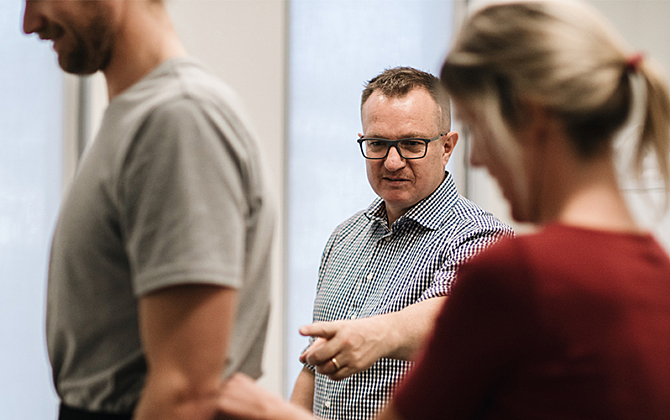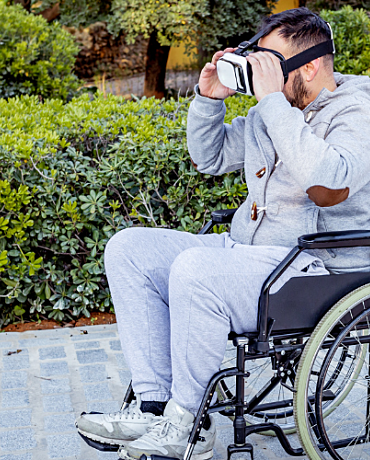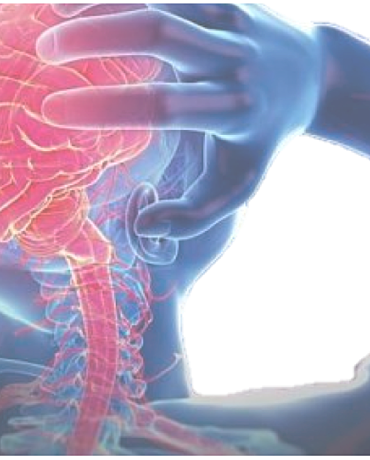Chronic pain
Understanding the role of the brain in chronic pain will help unlock effective treatments and management strategies to improve the quality of life for individuals suffering from this often debilitating condition.
Understanding the role of the brain in chronic pain will help unlock effective treatments and management strategies to improve the quality of life for individuals suffering from this often debilitating condition.

Chronic pain costs the country billions each year in health and productivity costs and reduced quality of life. People living with chronic pain often experience disability and comorbid mental health disorders and struggle to find effective treatments. It is complex because it is a result of interaction between biological, psychological, and social factors. Pain may occur following surgery or an injury but it can also occur without any identifiable cause. Chronic pain may be experienced in a single part of the body or be spread across the body. Changes in the nervous system, including the brain, play an important role in maintaining chronic pain.
Complex Regional Pain Syndrome (CRPS) is one of the most painful of chronic pain conditions. It usually follows tissue injury in limbs. The pain lasts beyond the tissue healing time and is greater than the original injury, affecting 5,000 Australians every year. Strong pain relievers such as opioids do not seem to reduce CRPS pain and there are no known treatments backed by high-quality research. As a result, people with CRPS tend to opt for dangerous and life-threatening treatments.
Emerging evidence shows that there is a strong link between pain and mental health disorders. The aim of our research is to understand the underlying mechanisms for the development and maintenance of chronic pain and comorbid mental health disorders so that more effective treatments can be developed.
NeuRA conducts a wide range of research to better understand the mechanisms of chronic pain and to develop effective treatments. Our research is mainly focused on chronic low back pain, the leading cause of disability worldwide. It aims to understand why many people with low back pain do not recover normally and develop chronic low back pain. Our goal is to use this knowledge to develop and test new treatments for both prevention and cure.
Currently we are testing two novel treatments for CRPS in an Australian government-funded, randomised controlled trial, called MEMOIR.
NeuRA has developed a new approach that targets the area of the brain connected with sensory and motor functions and adapted for use with sensory pain. We demonstrated that thalamocortical dysfunction can be modulated by a non-invasive therapy that teaches patients to have direct control over their brain activity. The pilot studies are highly promising, and we are now ready to comprehensively test this new therapy in a randomised controlled trial.
We have also brought together international experts in science and spinal cord injury pain to examine the effectiveness and mechanics of an advanced interactive virtual reality walking intervention. Virtual Reality walking is a novel extension of established illusory walking/visual feedback therapies and in early studies is promising to be among the only effective non-pharmaceutical treatments for pain from spinal cord injury.
Every dollar of community support enables our scientists to continue making life-changing discoveries that contribute to a brighter and healthier future.
Run, swim or bake your way to making a positive difference in the lives of people touched by brain and nervous system disorders.
Stay informed about our latest research breakthroughs, scientific discoveries and the incredible minds behind them – subscribe today.
Neuroscience Research Australia respectfully acknowledges the Bidjigal and Gadigal peoples of the Eora Nation as the Traditional Owners of the Land on which we stand and pay our respects to Elders past and present.
Redevelopment of the NeuRA website has been made possible by the generous support of Conexus Financial.










